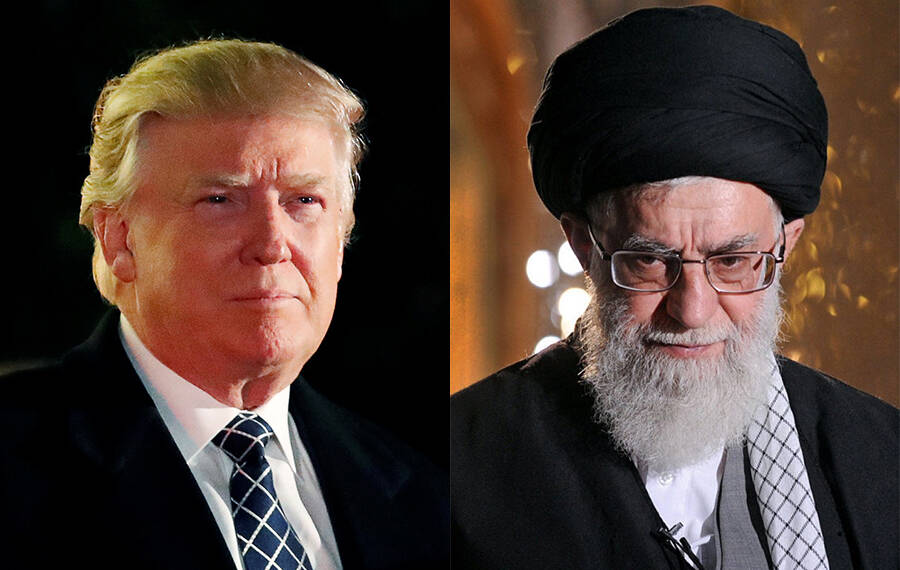Trump’s potential return to office has generated widespread optimism among certain groups globally. This comes after four years under the Biden-Harris administration, which critics argue has been marked by international conflicts, cultural shifts, and global instability.
The Middle East situation illustrates these challenges. Israel faces existential threats, while Iran’s increased regional influence during Biden’s tenure has escalated tensions. In Gaza, the humanitarian toll continues to mount, with some local residents expressing war fatigue despite ongoing conflicts.
While Trump’s potential presidency is viewed by supporters as a path to peace, an interesting development is Fatah’s (Palestinian Authority’s) apparent satisfaction with this possibility. Fatah has made some major comments about the current crisis. And honestly, these words have sparked anxiety in Tehran.
FATAH PIN HOPES ON TRUMP
According to media reports, US President-elect Donald Trump’s return to the White House on January 20 will bring about the end of the Iranian regime and Hamas, Mohammad Hamdan, secretary general of the Palestinian Authority’s ruling Fatah faction has stated.
The New York Post reported on Monday that Fatah sees Trump and the ruling government in Israel, detimental to destroy Iran, so Hamas [followers] will have no other choice than to become Palestinian [i.e., fall in line with the PA],”
This hopeful statement comes as recent weeks have seen Palestinian Authority (P.A.) security forces intensify their crackdown on Hamas in Judea and Samaria. Last month on 6th of December Hamas seized two P.A. vehicles, parading them with ISIS flags. In response, P.A. raided on Hamas and Islamist cells resulted in at least three deaths.
Hamdan highlighted Hamas’s rejection of international legitimacy, citing its disregard for U.N. resolutions.
For those who don’t know, Hamas last won a Palestinian Authority legislative election in January 2006 but took control of Gaza in 2007, while the P.A., led by Mahmoud Abbas, governs parts of Judea and Samaria. And so, Hamas and Fatah remain sworn enemies despite international talks.
WHY FATAH HATES IRAN?
Fatah, founded by Yasser Arafat, historically advocates a secular approach and has pursued diplomacy with Israel, including the Oslo Accords. Hamas, an Islamist organization designated as a terrorist group by several countries, rejects Israel’s legitimacy and employs armed resistance.
Their rivalry intensified in 2006 when Hamas won the Palestinian legislative elections, challenging Fatah’s long-standing dominance. Tensions erupted into a violent conflict in 2007, leading to Hamas seizing control of Gaza, while Fatah maintained authority in the West Bank.
Efforts for reconciliation have repeatedly failed due to deep mistrust, differing governance styles, and opposing stances on Israel. Furthermore, there have also been claims by Fatah that Iran is now running Hamas from behind.
Fatah leaders have been vocal about Tehran’s influence, claiming Iran has effectively taken command of Hamas’s military and political decisions after October 7 Attack. Iran has long supported and influenced Hamas, providing financial, military, and logistical assistance to bolster the group’s capabilities.
Tehran views Hamas as a strategic ally in its broader regional conflict with Israel and the United States.
KHAMENEI NOW A THREAT TO WEST BANK
And so, Khamenei and his network have supplied Hamas with millions of dollars annually to fund governance in Gaza and military operations, including manufacturing rockets and building tunnels. Iranian Revolutionary Guard Corps (IRGC) units have trained Hamas fighters, enhancing their guerrilla warfare and missile development skills.
This partnership enables Hamas to act as a proxy in Iran’s strategy to challenge Israel indirectly. And now, the worsening war scenario is threatening Fatah’s rule on West Bank. And so, Fatah is now pinning hope on Trump administration that it may dismantle Iran. The eventual controller of Hamas.
Trump was evaluating the possibility of preemptive strikes on Iran to stop its growing nuclear program, The Wall Street Journal reported in early December. So, can Trump dismantle Iran’s influence and cut off Hamas’s puppet strings?
The answer isn’t simple. Even with his historic hardline stance and reported plans for preemptive strikes, taking on Iran’s deeply entrenched nuclear and proxy network would be a massive undertaking. For Fatah, placing hopes on Trump might be a strategic gamble in these uncertain times.








